JAJSC46B February 2011 – July 2015 UCC27200A , UCC27201A
PRODUCTION DATA.
- 1 特長
- 2 アプリケーション
- 3 概要
- 4 改訂履歴
- 5 Pin Configuration and Functions
- 6 Specifications
- 7 Detailed Description
- 8 Application and Implementation
- 9 Power Supply Recommendations
- 10Layout
- 11デバイスおよびドキュメントのサポート
- 12メカニカル、パッケージ、および注文情報
パッケージ・オプション
メカニカル・データ(パッケージ|ピン)
サーマルパッド・メカニカル・データ
発注情報
6 Specifications
6.1 Absolute Maximum Ratings
Over operating free-air temperature, unless noted, all voltages are with respect to VSS (1)| MIN | MAX | UNIT | ||
|---|---|---|---|---|
| Supply voltage range, (2) VDD | –0.3 | 20 | V | |
| Input voltages on LI and HI, VLI, VHI | –0.3 | 20 | V | |
| Output voltage on LO, VLO | DC | –0.3 | VDD + 0.3 | V |
| Repetitive pulse <100 ns(3) | –2 | VDD + 0.3 | ||
| Output voltage on HO, VHO | DC | VHS – 0.3 | VHB + 0.3 | V |
| Repetitive pulse <100 ns(3) | VHS – 2 | VHB + 0.3, (VHB - VHS <20) | ||
| Voltage on HS, VHS | DC | –1 | 120 | V |
| Repetitive pulse <100 ns(3) | –18 | 120 | ||
| Voltage on HB, VHB | –0.3 | 120 | V | |
| Voltage On HB-HS | –0.3 | 120 | V | |
| Operating virtual junction temperature range, TJ | –40 | 150 | °C | |
| Lead temperature (soldering, 10 sec.) | 300 | °C | ||
| Power dissipation at TA = 25°C (D package) (4) | 1.3 | W | ||
| Power dissipation at TA = 25°C (DDA package) (4) | 2.7 | W | ||
| Power dissipation at TA = 25°C (DRM package) (4) | 3.3 | W | ||
| Power dissipation at TA = 25°C (DRC package) (4) | 2.86 | W | ||
| Storage temperature, Tstg | –65 | 150 | °C | |
(1) Stresses beyond those listed under Absolute Maximum Ratings may cause permanent damage to the device. These are stress ratings only, which do not imply functional operation of the device at these or any other conditions beyond those indicated under Recommended Operating Conditions. Exposure to absolute-maximum-rated conditions for extended periods may affect device reliability.
(2) All voltages are with respect to Vss. Currents are positive into, negative out of the specified terminal.
(3) Values are verified by characterization and are not production tested.
(4) This data was taken using the JEDEC proposed high-K test PCB. See the THERMAL CHARACTERISTICS section for details.
6.2 ESD Ratings
| VALUE | UNIT | |||
|---|---|---|---|---|
| V(ESD) | Electrostatic discharge | Human body model (HBM), per ANSI/ESDA/JEDEC JS-001(1) | 2000 | V |
| Charged-device model (CDM), per JEDEC specification JESD22-C101(2) | 1000 | |||
(1) JEDEC document JEP155 states that 500-V HBM allows safe manufacturing with a standard ESD control process.
(2) JEDEC document JEP157 states that 250-V CDM allows safe manufacturing with a standard ESD control process.
6.3 Recommended Operating Conditions
over operating free-air temperature range (unless otherwise noted)6.4 Thermal Information
| THERMAL METRIC(1) | UCC27200A /UCC27201A |
UCC27200A /UCC27201A |
UCC27200A /UCC27201A |
UCC27200A /UCC27201A |
UCC27200A /UCC27201A |
UNIT | |
|---|---|---|---|---|---|---|---|
| DRM (VSON) | DRC (VSON) | DPR (WSON) | D (SOIC) | DDA (HSOP) | |||
| 8 PINS | 9 PINS | 10 PINS | 8 PINS | 8 PINS | |||
| RθJA | Junction-to-ambient thermal resistance | 36.2 | 43.7 | 34.8 | 106.5 | 40.5 | °C/W |
| RθJC(top) | Junction-to-case (top) thermal resistance | 41.6 | 49.9 | 32.1 | 52.9 | 49 | °C/W |
| RθJB | Junction-to-board thermal resistance | 13.2 | 19.1 | 11.9 | 46.6 | 10.2 | °C/W |
| ψJT | Junction-to-top characterization parameter | 0.6 | 0.6 | 0.2 | 9.6 | 3.1 | °C/W |
| ψJB | Junction-to-board characterization parameter | 13.4 | 19.3 | 12.2 | 46.1 | 9.7 | °C/W |
| RθJC(bot) | Junction-to-case (bottom) thermal resistance | 3.1 | 3.8 | 1.3 | — | 1.5 | °C/W |
(1) For more information about traditional and new thermal metrics, see the Semiconductor and IC Package Thermal Metrics application report, SPRA953.
6.5 Electrical Characteristics
over operating free-air temperature range, VDD = VHB = 12 V, VHS = VSS = 0 V, No load on LO or HO, TA = TJ = –40°C to +140°C, (unless otherwise noted)| PARAMETER | TEST CONDITIONS | MIN | TYP | MAX | UNIT | ||
|---|---|---|---|---|---|---|---|
| SUPPLY CURRENTS | |||||||
| IDD | VDD quiescent current | VLI = VHI = 0 | 0.4 | 0.8 | mA | ||
| IDDO | VDD operating current | UCC27200A | f = 500 kHz, CLOAD = 0 | 2.5 | 4 | mA | |
| UCC27201A | f = 500 kHz, CLOAD = 0 | 3.8 | 5.5 | ||||
| IHB | Boot voltage quiescent current | VLI = VHI = 0 V | 0.4 | 0.8 | mA | ||
| IHBO | Boot voltage operating current | f = 500 kHz, CLOAD = 0 | 2.5 | 4 | mA | ||
| IHBS | HB to VSS quiescent current | VHS = VHB = 110 V | 0.0005 | 1 | uA | ||
| IHBSO | HB to VSS operating current | f = 500 kHz, CLOAD = 0 | 0.1 | mA | |||
| INPUT | |||||||
| VHIT | Input rising threshold | UCC27200A | 5.8 | 8 | V | ||
| VLIT | Input falling threshold | UCC27200A | 3 | 5.4 | V | ||
| VIHYS | Input voltage hysteresis | UCC27200A | 0.4 | V | |||
| VHIT | Input voltage threshold | UCC27201A | 1.7 | 2.5 | V | ||
| VLIT | Input voltage threshold | UCC27201A | 0.8 | 1.6 | V | ||
| VIHYS | Input voltage Hysteresis | UCC27201A | 100 | mV | |||
| RIN | Input pulldown resistance | UCC27201A | 100 | 200 | 350 | kΩ | |
| UNDERVOLTAGE PROTECTION (UVLO) | |||||||
| VDD rising threshold | 6.2 | 7.1 | 7.8 | V | |||
| VDD threshold hysteresis | 0.5 | V | |||||
| VHB rising threshold | 5.8 | 6.7 | 7.2 | V | |||
| VHB threshold hysteresis | 0.4 | V | |||||
| BOOTSTRAP DIODE | |||||||
| VF | Low-current forward voltage | I VDD - HB = 100 μA | 0.65 | 0.85 | V | ||
| VFI | High-current forward voltage | I VDD - HB = 100 mA | 0.85 | 1.1 | V | ||
| RD | Dynamic resistance, ΔVF/ΔI | I VDD - HB = 100 mA and 80 mA | 0.6 | 1.0 | Ω | ||
| LO GATE DRIVER | |||||||
| VLOL | Low level output voltage | ILO = 100 mA | 0.18 | 0.4 | V | ||
| VLOH | High level output voltage | TJ = -40 to 125°C | ILO = –100 mA, VLOH = VDD - VLO | 0.25 | 0.4 | V | |
| TJ = -40 to 140°C | ILO = –100 mA, VLOH = VDD - VLO | 0.25 | 0.42 | ||||
| Peak pullup current | VLO = 0 V | 3 | A | ||||
| Peak pulldown current | VLO = 12 V | 3 | A | ||||
| HO GATE DRIVER | |||||||
| VHOL | Low level output voltage | IHO = 100 mA | 0.18 | 0.4 | V | ||
| VHOH | High level output voltage | TJ = -40 to 125°C | IHO = –100 mA, VHOH = VHB- VHO | 0.25 | 0.4 | V | |
| TJ = -40 to 140°C | IHO = –100 mA, VHOH = VHB- VHO | 0.25 | 0.42 | ||||
| Peak pullup current | VHO = 0 V | 3 | A | ||||
| Peak pulldown current | VHO = 12 V | 3 | A | ||||
| PROPAGATION DELAYS | |||||||
| tDLFF | VLI falling to VLO falling | TJ = -40 to 125°C | CLOAD = 0 | 20 | 45 | ns | |
| TJ = -40 to 140°C | CLOAD = 0 | 20 | 50 | ||||
| tDHFF | VHI falling to VHO falling | TJ = -40 to 125°C | CLOAD = 0 | 20 | 45 | ns | |
| TJ = -40 to 140°C | CLOAD = 0 | 20 | 50 | ||||
| tDLRR | VLI rising to VLO rising | TJ = -40 to 125°C | CLOAD = 0 | 20 | 45 | ns | |
| TJ = -40 to 140°C | CLOAD = 0 | 20 | 50 | ||||
| tDHRR | VHI rising to VHO rising | TJ = -40 to 125°C | CLOAD = 0 | 20 | 45 | ns | |
| TJ = -40 to 140°C | CLOAD = 0 | 20 | 50 | ||||
| DELAY MATCHING | |||||||
| tMON | LI ON, HI OFF | 1 | 7 | ns | |||
| tMOFF | LI OFF, HI ON | 1 | 7 | ns | |||
| OUTPUT RISE AND FALL TIME | |||||||
| tR | LO, HO | CLOAD = 1000 pF | 8 | ns | |||
| tF | LO, HO | CLOAD = 1000 pF | 7 | ns | |||
| tR | LO, HO (3 V to 9 V) | CLOAD = 0.1 μF | 0.35 | 0.6 | us | ||
| tF | LO, HO (3 V to 9 V) | CLOAD = 0.1 μF | 0.3 | 0.6 | us | ||
| MISCELLANEOUS | |||||||
| Minimum input pulse width that changes the output | 50 | ns | |||||
| Bootstrap diode turnoff time | IF = 20 mA, IREV = 0.5 A(1) (2) | 20 | ns | ||||
(1) Typical values for TA = 25°C
(2) IF: Forward current applied to bootstrap diode, IREV: Reverse current applied to bootstrap diode.
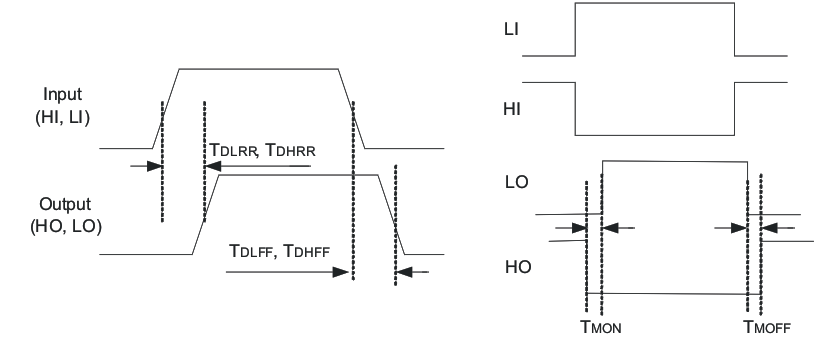 Figure 1. Timing Diagram
Figure 1. Timing Diagram
6.6 Typical Characteristics
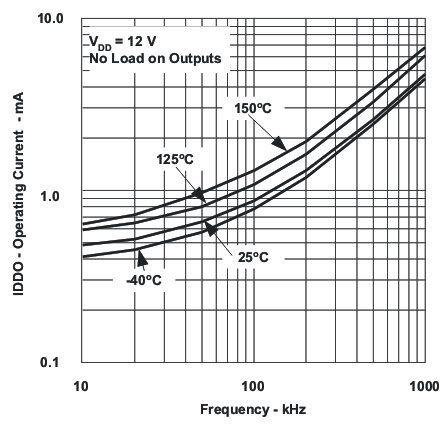 Figure 2. UCC27200A IDD Operating Current vs Frequency
Figure 2. UCC27200A IDD Operating Current vs Frequency
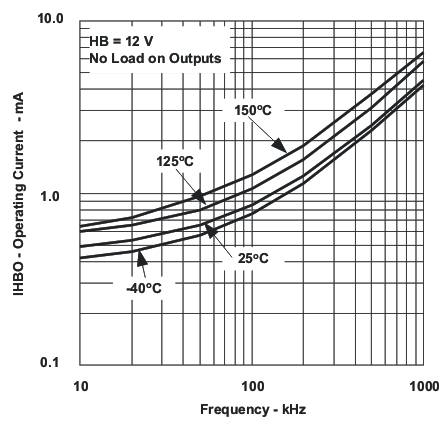 Figure 4. Boot Voltage Operating Current vs Frequency
Figure 4. Boot Voltage Operating Current vs Frequency
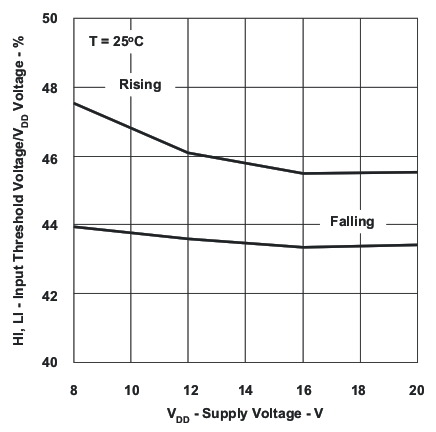 Figure 6. UCC27200A Input Threshold vs Supply Voltage
Figure 6. UCC27200A Input Threshold vs Supply Voltage
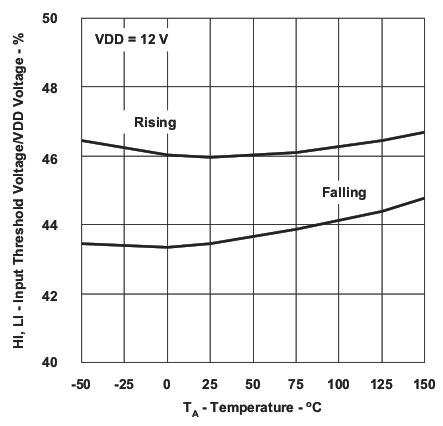 Figure 8. UCC27200A Input Threshold vs Temperature
Figure 8. UCC27200A Input Threshold vs Temperature
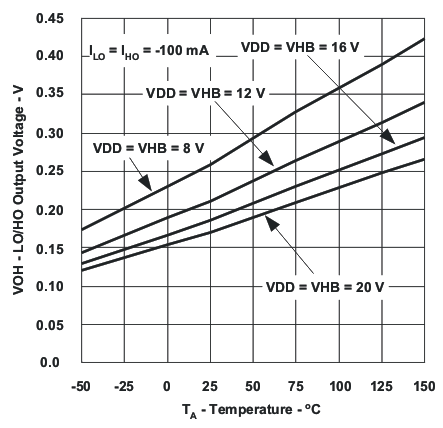 Figure 10. Lo and Ho High Level Output Voltage vs Temperature
Figure 10. Lo and Ho High Level Output Voltage vs Temperature
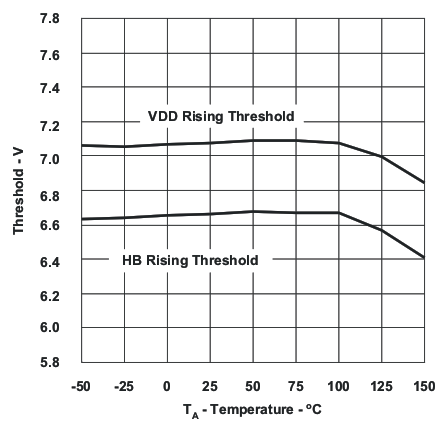 Figure 12. Undervoltage Lockout Threshold vs Temperature
Figure 12. Undervoltage Lockout Threshold vs Temperature
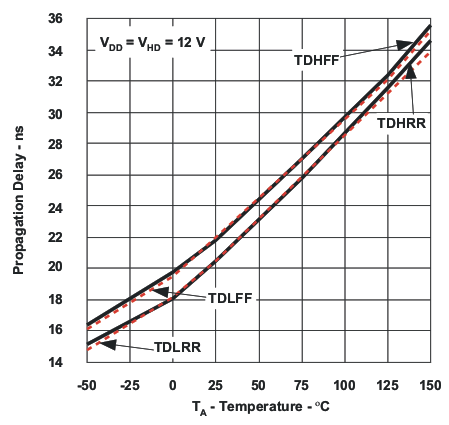 Figure 14. UCC27200A Propagation Delays vs Temperature
Figure 14. UCC27200A Propagation Delays vs Temperature
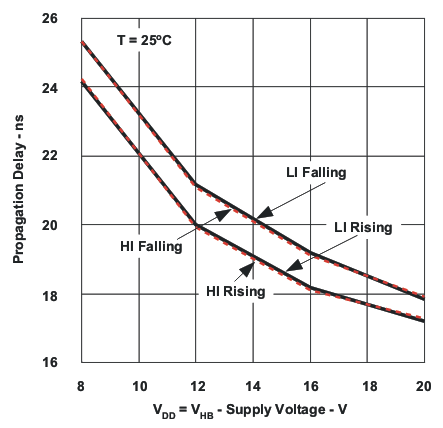 Figure 16. UCC27200A Propagation Delay vs Supply Voltage
Figure 16. UCC27200A Propagation Delay vs Supply Voltage
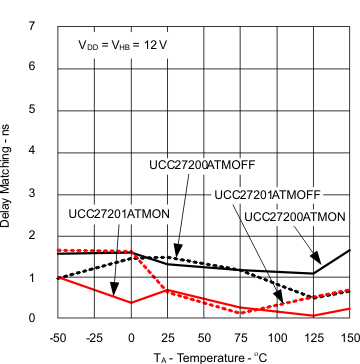 Figure 18. Delay Matching vs Temperature
Figure 18. Delay Matching vs Temperature
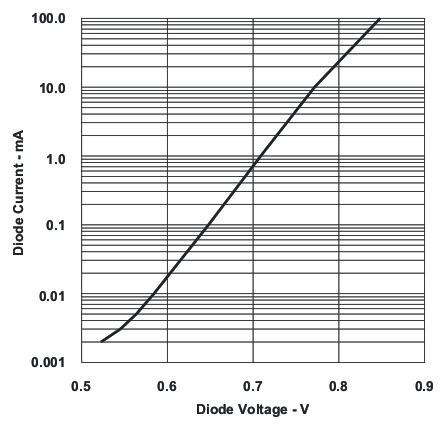 Figure 20. Diode Current vs Diode Voltage
Figure 20. Diode Current vs Diode Voltage
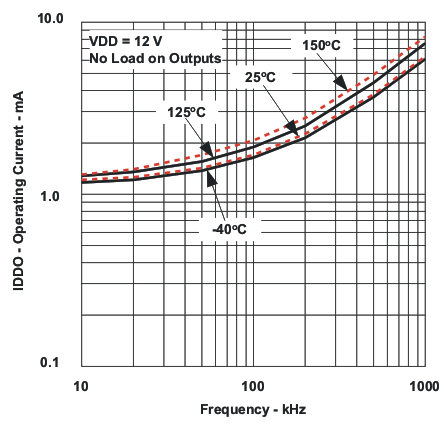 Figure 3. UCC27201A IDD Operating Current vs Frequency
Figure 3. UCC27201A IDD Operating Current vs Frequency
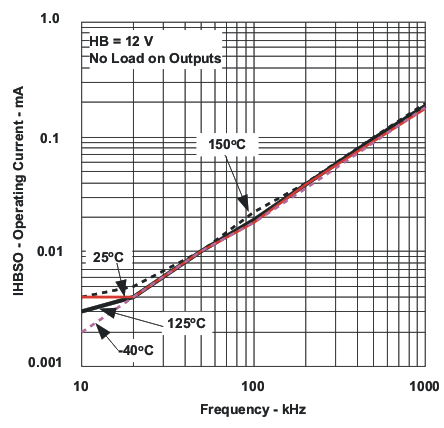 Figure 5. HB to VSS Operating Current vs Frequency
Figure 5. HB to VSS Operating Current vs Frequency
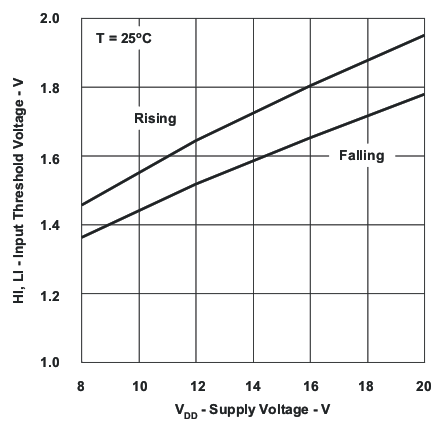 Figure 7. UCC27201A Input Threshold vs Supply Voltage
Figure 7. UCC27201A Input Threshold vs Supply Voltage
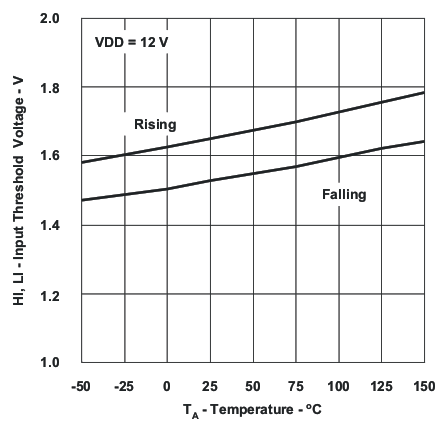 Figure 9. UCC27201A Input Threshold vs Temperature
Figure 9. UCC27201A Input Threshold vs Temperature
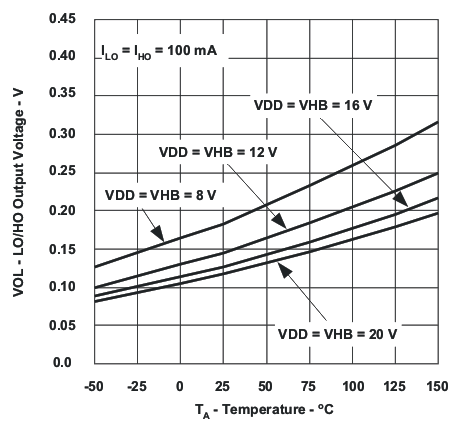 Figure 11. Lo and Ho Low Level Output Voltage vs Temperature
Figure 11. Lo and Ho Low Level Output Voltage vs Temperature
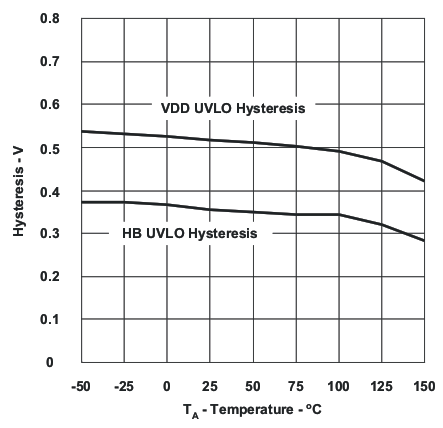 Figure 13. Undervoltage Lockout Threshold Hysteresis vs Temperature
Figure 13. Undervoltage Lockout Threshold Hysteresis vs Temperature
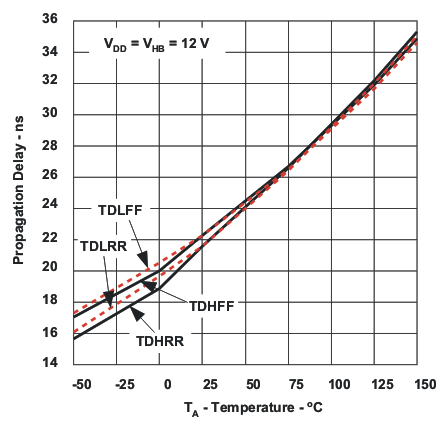 Figure 15. UCC27201A Propagation Delays vs Temperature
Figure 15. UCC27201A Propagation Delays vs Temperature
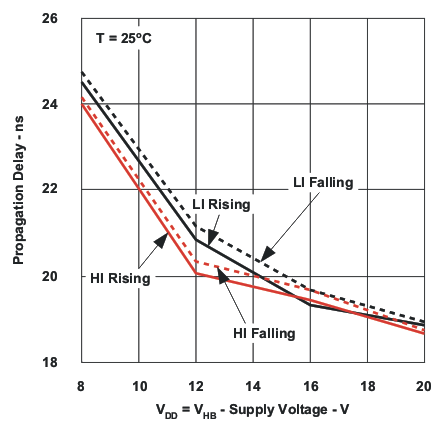 Figure 17. UCC27201A Propagation Delay vs Supply Voltage
Figure 17. UCC27201A Propagation Delay vs Supply Voltage
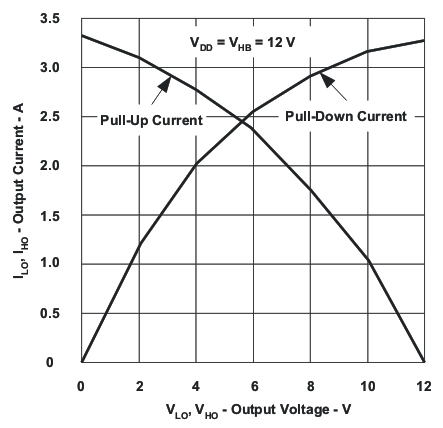 Figure 19. Output Current vs Output Voltage
Figure 19. Output Current vs Output Voltage
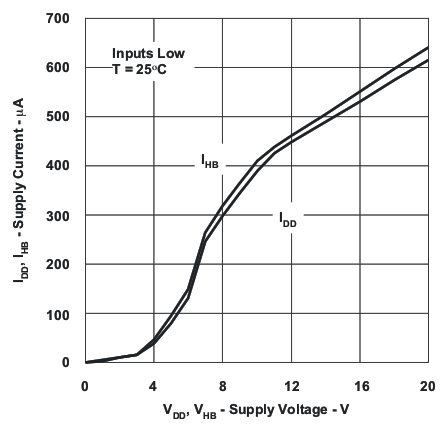 Figure 21. Quiescent Current vs Supply Voltage
Figure 21. Quiescent Current vs Supply Voltage